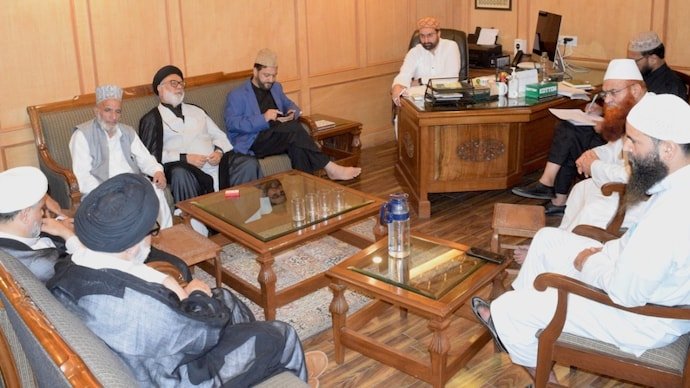As India marks the 150th anniversary of Vande Mataram, the anthem that once thundered through streets of rebellion a storm brews in Jammu & Kashmir. The government wants every school to sing it in celebration. Some Muslim groups say no, calling it “un-Islamic” and a violation of faith.
The question burning across the nation is simple:
Since when is loving your country a sin?
History Context
Bankim Chandra Chatterjee didn’t just write lyrics in 1875 he forged a weapon.
From Bengal’s Swadeshi rallies to Punjab’s gallows, Vande Mataram was the heartbeat of resistance. Revolutionaries whispered it before bombs. Mothers sang it to sons marching to jail.
It wasn’t about religion.
It was about freedom.
Today, it stands as India’s official National Song equal in honor to Jana Gana Mana. A symbol that belongs to every Indian, not one community.

The Current Issue in J&K
Last week, the J&K Culture Department issued a clear order:
All schools must celebrate the 150th year with Vande Mataram performances.
But the Mutahida Majlis-e-Ulema (MMU), a powerful coalition of religious leaders, pushed back hard.
They labeled the directive “coercive” and said singing the song contradicts Islamic belief in the oneness of God (Tawheed).
Their words “un-Islamic,” “against faith”have lit a fire on social media.
Millions are asking: Is patriotism now a choice based on religion?
Patriotism Doesn’t Wear a Religion
Let’s be clear:
Vande Mataram is not a Hindu hymn.
It’s a tribute to the motherland the soil that feeds us, the rivers that sustain us, the sky that shelters us all.
No one is asking anyone to worship an idol.
We’re asking children to honor the nation that gave them schools, roads, and security.
If students in Kerala, Tamil Nadu, or Uttar Pradesh can sing it with pride,
Why should a child in Srinagar be told to sit in silence?
This Isn’t About Force It’s About Identity
Opposing a national song isn’t just personal preference.
It sends a message to the next generation:
“You can love India… but only on your terms.”
That’s not unity.
That’s conditional citizenship.
The freedom fighters who died shouting Vande Mataram didn’t ask for caste certificates or faith declarations.
They asked for India.
What History Demands We Remember
Vande Mataram was banned by the British not because it was religious, but because it was dangerous.
It was sung in Congress sessions, Muslim League protests, and Sikh gurudwaras alike.
Even Mahatma Gandhi called it the “soul of India.”
Refusing it today doesn’t protect faith.
It erases history.
The Final Truth
In J&K or anywhere else, Vande Mataram isn’t a command it’s a reminder.
A reminder that before we were Hindu, Muslim, Sikh, or Christian…
We were Indian.
If we can’t bow to the land that raised us,
Then maybe we’ve forgotten what the song was really about.